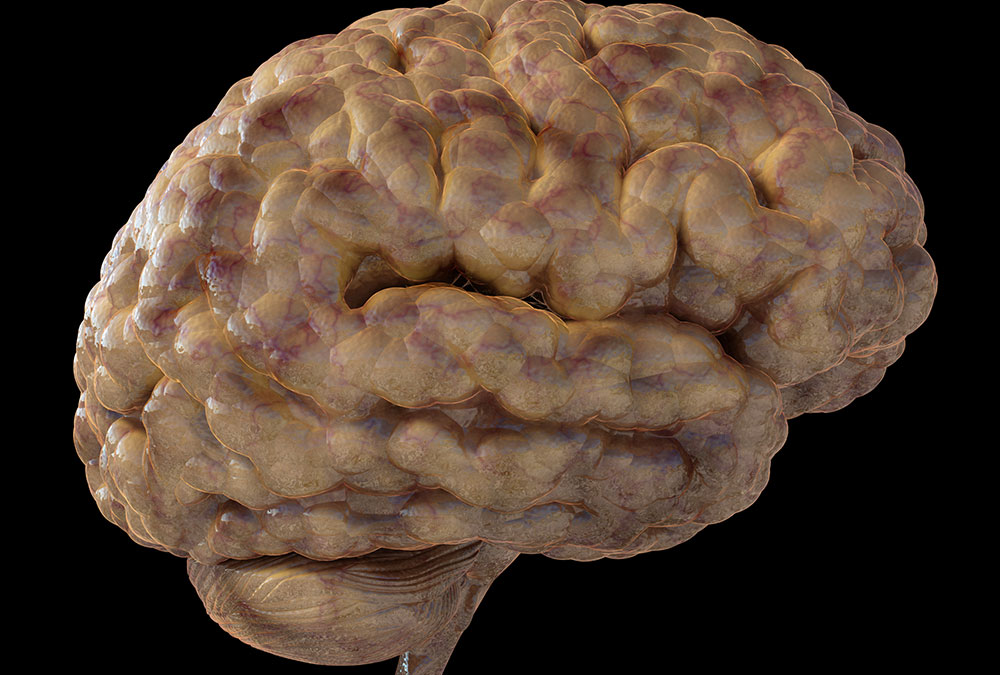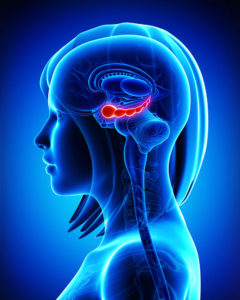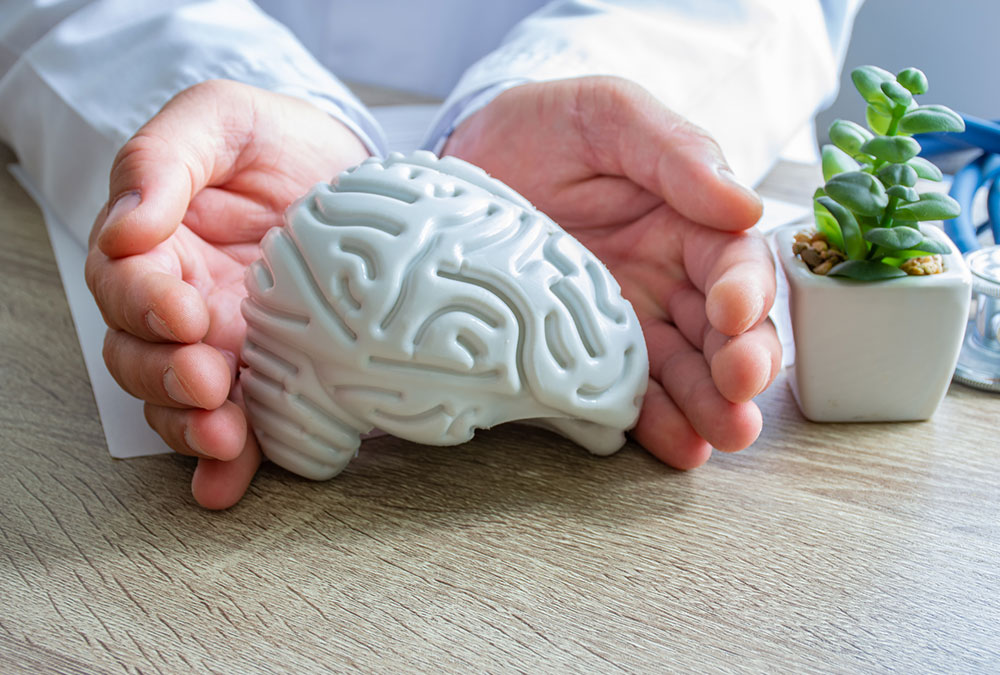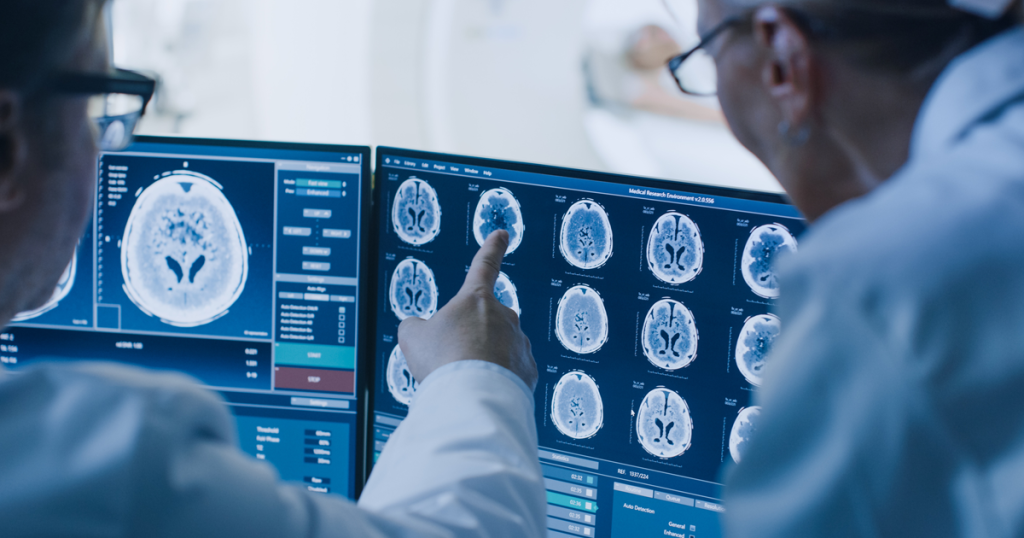Alcoholism is a chronic disease that is characterized by uncontrolled drinking of alcoholic beverages as well as a preoccupation with alcohol. Also known as alcohol dependence, alcoholism has the ability to take over the life of an individual to the point where they experience a physical inability to stop drinking, especially at times when alcoholic beverages are present.
While some people are able to drink casually or occasionally, others develop a dependence. Reasons for this dependency vary and are often influenced by genetic or environmental factors for many people. For others, drinking may be seen as a means to manage mental health issues. Because alcohol affects the brain’s functions, it might mask certain comorbidities. Some of the factors that can lead to the development of alcoholism include frequent drinking, mental health conditions, a history of trauma, or high-impact social stressors such as a job loss, divorce, or death of a loved one.
Many times, when it comes to alcoholism, the focus is on examining the physical and social aspects of how alcoholism negatively impacts the life of an individual. However, it is also important to understand how alcoholism internally impacts individuals via the brain. Both issues are directly connected, as brain chemistry influences many of the decision-making processes of those who have alcoholism.
Alcohol Affects the Brain in Several Ways
The human brain is an extremely delicate and intricate organ that only functions properly if it maintains a careful balance of neurotransmitters, the chemicals responsible for brain function. Alcoholism disrupts this fine balance of hormones and other chemicals and disturbs the brain’s natural equilibrium. When alcoholism occurs on a long-term basis, the brain of the addicted individual is forced to adapt in an effort to compensate for the effects of alcohol. [1]Alfonso-Loeches, S., & Guerri, C. (2011). Molecular and behavioral aspects of the actions of alcohol on the adult and developing brain. Critical reviews in clinical laboratory sciences, 48(1), … Continue reading Once the brain begins to change, the negative effects of an individual’s alcoholism typically show up in their behavior, speech, comprehension, and mental and emotional state.
When the brain is exposed to the toxins found in alcohol for long periods of time, it begins to function abnormally. Parts of the brain, including the hippocampus, may even shrink in size. At some point, many people with alcohol addiction may experience troublesome issues with memory recollection and processing of new information as they attempt to learn new things.
These brain changes often lead people to act in a self-destructive manner as the brain loses its ability to perform normally and begins to crave alcohol. Eventually, the urge to consume more can become almost all-encompassing. As a result of changes in the brain, alcoholism is a serious disease that robs many people of their quality of life. People struggling with alcohol addiction may be unable to maintain steady employment or may lose their jobs altogether. Once healthy relationships with friends, loved ones, and the ability to contribute to society become compromised, the deterioration of those important connections can spur more destructive behavior.
Alcohol Can Cause Changes in Brain Structure

Alcohol addiction has the potential to inflict long-lasting harm to the brain. According to researchers, the brain’s hippocampus plays a major role in a person’s ability to learn new information and retain that learned information both long and short-term. The hippocampus is a highly vulnerable brain structure, heavily influenced by the chemicals processed in the body. For that reason, it is susceptible to shrinkage and abnormal function.
In an Oxford University study, researchers followed a group of participants for 30 years to track their drinking patterns and determine if those patterns impacted their brain health over that time span. Researchers found that the participants who drank four or more alcoholic drinks a day had almost six times the risk of hippocampus shrinkage compared to participants who were nondrinkers. [2]Anderson, M. L., Nokia, M. S., Govindaraju, K. P., & Shors, T. J. (2012). Moderate drinking? Alcohol consumption significantly decreases neurogenesis in the adult hippocampus. Neuroscience, 224, … Continue reading
Over that 30-year span, brain shrinkage in participants was correlated positively to the amount of alcohol the participant consumed. Even participants who were mild to moderate drinkers showed more brain shrinkage of their hippocampus than those who completely abstained from alcohol consumption. This means that in comparison to those who drink moderately, individuals with alcoholism experience shrunken parts of the brain due to their excessive alcohol consumption.
While even moderate drinking causes damage in the form of hippocampus shrinkage over time, the impacts are much more significant in alcoholics. Heavier drinkers may sustain much more damage to their hippocampus, especially over years of alcohol use.
Alcohol Can Cause Problems With Memory and Learning

In adults, the process of neurogenesis is critical to learning. Furthermore, in the adult brain, most new neurons that are produced die unless individuals maintain them by remaining in a state of learning and taking in new information. Consuming large amounts of alcohol over time can lead to long-term memory loss and increased difficulties retaining any newly learned information.
Alcohol Can Increase Mood Disorders Like Depression, Anxiety, and Paranoi
Alcoholism alters a person’s behavior, and research has shown that alcoholism can induce major mood disorders in people, such as depression and anxiety. [3]Kelley, K. W., & Dantzer, R. (2011). Alcoholism and inflammation: neuroimmunology of behavioral and mood disorders. Brain, behavior, and immunity, 25, S13-S20. … Continue reading Furthermore, research has discovered cases of alcoholism being correlated with paranoia in addicted individuals. [4]Libby, A. F., Day, J. L., Starling, C. R., MacMurray, D. K., & Josefson, F. H. (1982). A Study Indicating a Connection Between Paranoia, Schizophrenia, Perceptual Disorders, and IQ in Alcohol and … Continue reading
According to substance abuse specialists, anxiety is a common feeling that occurs when people consume too much alcohol. For anyone who is already prone to bouts of depression or anxiety, consuming alcohol can worsen the symptoms of those conditions. This occurs primarily because when someone drinks alcohol, their brain releases dopamine into the pleasure center of their brain. The extra dopamine, known as “the feel-good hormone,” can help the person relax and feel good.
However, those feelings can be short-lived. When those dopamine levels fall, anxiety creeps back in, and that person is right back where they began. The confusing aspect of such a dependency can make an effect that seems to help initially into a cycle that causes anxiety and depression to worsen. However, because it offers immediate help, alcohol is the first thing alcoholics will turn to in order to alleviate depression and anxiety, ignoring the inevitable crash.
The Anxious Response to Alcohol
Because heavy drinking causes the brain to undergo physiological changes, a person consuming alcohol gets a release of gamma-aminobutyric acid in addition to dopamine. This additional feel-good hormone can cause feelings of calmness and relaxation. [5]Bendszus, M., Weijers, H. G., Wiesbeck, G., Warmuth-Metz, M., Bartsch, A. J., Engels, S., … & Solymosi, L. (2001). Sequential MR imaging and proton MR spectroscopy in patients who underwent … Continue reading Once the drinking stops, however, the feel-good hormones diminish and the alcoholic experiences the loss of that calm. If the body becomes accustomed to using alcohol to feel calm, dependency can develop as a mechanism to help a person reach their preferred state of calmness time and time again.
After drinking alcohol, people suffering from anxiety often find that they feel more emotionally off-balance. Blood alcohol content (BAC) rises when you drink, so you may temporarily experience a sense of calm. As your level of blood alcohol content falls, the rebound effect of returning to a state of sobriety can actually heighten anxiety symptoms like worry, restlessness, and fear.
The steep drop in emotions often drives people straight back to alcohol consumption, thus trapping them in a vicious cycle of emotional discomfort that they cope with via alcohol dependence. Excessive alcohol consumption can also make it harder for you to sleep. Unfortunately, a lack of sleep can also make anxiety worse.
Alcohol and Depression
For people struggling with depression, alcohol consumption is often used as a way to suppress the symptoms related to their condition, including irritability, anxiety, loss of interest, restlessness, and trouble sleeping. Much like alcohol users with anxiety, those with depression may consume alcohol as a way to escape reality and attempt to relax. Unfortunately, using alcohol to cope with depression can actually make a person’s depression worse.
The consumption of alcohol acts as a depressant, inhibiting brain activity and exaggerating feelings of sadness, hopelessness, and overwhelm. The dramatic rise and fall of feel-good hormones in the brain from alcohol consumption can further worsen the chemical imbalances thought to be responsible for depression, triggering further episodes of depressive symptoms.
Alcohol dependence can also bring about a state of paranoia or alcohol psychosis. When alcohol psychosis sets in, individuals experience strong feelings of suspiciousness and paranoid delusions where they fear being harmed. In some individuals, their chronic alcohol consumption alters the mind to the point of them having an alcohol-induced psychotic episode where they pose harm to themselves and/or others. Those who are suffering from co-occurring mental health issues may be particularly prone to these problems.
Detoxification Can Help to Heal the Brain
The good news is that the body has ways to begin healing. Once a person stops drinking alcohol, their brain, among other organs, starts to repair the damage that has been done. The best way to restore healthy function to areas of the brain after alcohol dependence is through the process of detoxification.
Recent research on the power of detoxing from alcohol shows that healing can occur within the brains of individuals who abstain from drinking alcohol, even after long-term alcohol dependence. For some areas of the brain, detoxing alone helps those areas recover to their previous states, while other areas may require additional cognitive exercise to get back to a fully healthy condition.
Studies also indicate that detoxification can lead to brain function recovery, and even the structure of the brain itself may recover. This means the size of the hippocampus could return to a normal or near-normal size with detoxification and proper care. Short-term and long-term memory, as well as other cognitive abilities that were affected by the shrinking of the hippocampus can improve as well.
When former drinkers refrained from drinking entirely, they experienced tissue gain in the brain. In other words, people also had volume increases in brain regions such as the hippocampus, insula, and cingulate cortex, areas that are linked to drug craving and decision-making. More brain tissue means more efficient recovery from physical, alcohol-induced damage. Researchers also believe that the increased volume of tissue in these important areas contributes to a greater ability to make better decisions. [6]Oscar-Berman, M., & Marinković, K. (2007). Alcohol: effects on neurobehavioral functions and the brain. Neuropsychology Review, 17(3), 239-257. https://doi.org/10.1007/s11065-007-9038-6
After only six months of abstinence, formerly alcohol-dependent participants also displayed better decision-making in environments where alcohol was present. In particular, these sober participants were less likely to go back to drinking when confronted with alcohol and were less likely to drink in the presence of people engaging in alcohol-related activities in their daily lives.
They had an increase in brain growth, learning, and cognitive function, causing the alcohol-related triggers to have a reduced impact on their decision-making skills. Going through detox and alcohol treatment helped these individuals rebuild their natural sense of self-control, and they experienced fewer alcohol cravings.
Treatment for Alcoholism Is the Best Way to Help Heal the Brain After Alcohol Abuse
The process of detoxification may seem like an enormous feat, but we want to assure you it can be done. It is possible to detox your body and your brain safely while in the care of experts who specialize in alcohol abuse recovery. Detox services in a safe, nurturing environment can begin the brain’s healing process almost immediately. Then, subsequent treatments like cognitive behavioral therapy, group therapy, and more can help the brain continue to heal without the influence of alcohol.
A holistic approach can help you achieve healing and regain a healthy lifestyle with the experts right by your side, providing you with the tools you need for a successful recovery. A focus on holistic healing places importance on the entire person and mending areas of your life that may have been damaged by their disorder.
This means part of your treatment should focus on addressing any co-occurring conditions and mending relationships with loved ones to help to create the support system you’ll need to recover once you return to your day-to-day life. Additionally, treatment can help you tackle nutrition, begin a fitness routine, and address your emotional well-being via meditation and mindfulness, areas that impact your mind, body, and spirit.

Begin Your Alcohol Recovery Journey
No one’s journey from alcohol or drug dependency is the same, but all people can benefit from halting the impacts on the brain caused by alcohol. Once you decide to begin your recovery, your brain will need time to adjust, both emotionally and medically. We call it a dependency for a reason; your brain and body has learned to depend on these substances to function. Breaking that dependency isn’t easy, but once your brain is free from the toxins introduced by alcohol, it can begin its return to healthy functioning. Detoxification and treatment can transform your life—but you don’t have to do it alone.
References
| ↑1 | Alfonso-Loeches, S., & Guerri, C. (2011). Molecular and behavioral aspects of the actions of alcohol on the adult and developing brain. Critical reviews in clinical laboratory sciences, 48(1), 19-47. https://doi.org/10.3109/10408363.2011.580567 |
|---|---|
| ↑2 | Anderson, M. L., Nokia, M. S., Govindaraju, K. P., & Shors, T. J. (2012). Moderate drinking? Alcohol consumption significantly decreases neurogenesis in the adult hippocampus. Neuroscience, 224, 202-209. https://doi.org/10.1016/j.neuroscience.2012.08.018 |
| ↑3 | Kelley, K. W., & Dantzer, R. (2011). Alcoholism and inflammation: neuroimmunology of behavioral and mood disorders. Brain, behavior, and immunity, 25, S13-S20. https://doi.org/10.1016/j.bbi.2010.12.013 |
| ↑4 | Libby, A. F., Day, J. L., Starling, C. R., MacMurray, D. K., & Josefson, F. H. (1982). A Study Indicating a Connection Between Paranoia, Schizophrenia, Perceptual Disorders, and IQ in Alcohol and Drug Abusers. Orthomolecular Psychiatry, 11(1), 50-66. https://doi.org/10.1016/j.drugalcdep.2009.10.006 |
| ↑5 | Bendszus, M., Weijers, H. G., Wiesbeck, G., Warmuth-Metz, M., Bartsch, A. J., Engels, S., … & Solymosi, L. (2001). Sequential MR imaging and proton MR spectroscopy in patients who underwent recent detoxification for chronic alcoholism: correlation with clinical and neuropsychological data. American Journal of Neuroradiology, 22(10), 1926-1932. Retrieved April 27, 2022, from https://pubmed.ncbi.nlm.nih.gov/11733327/ |
| ↑6 | Oscar-Berman, M., & Marinković, K. (2007). Alcohol: effects on neurobehavioral functions and the brain. Neuropsychology Review, 17(3), 239-257. https://doi.org/10.1007/s11065-007-9038-6 |




